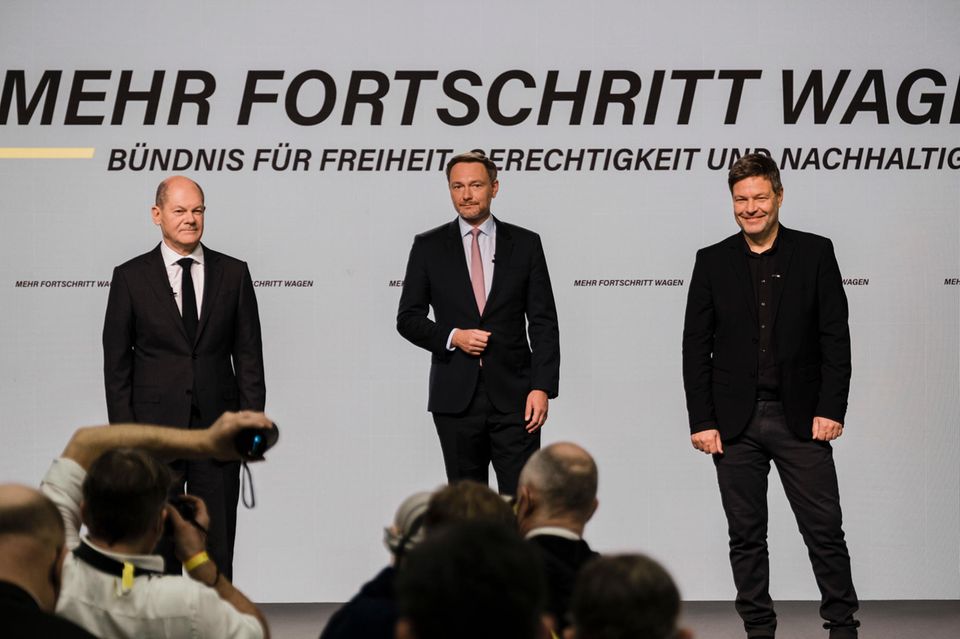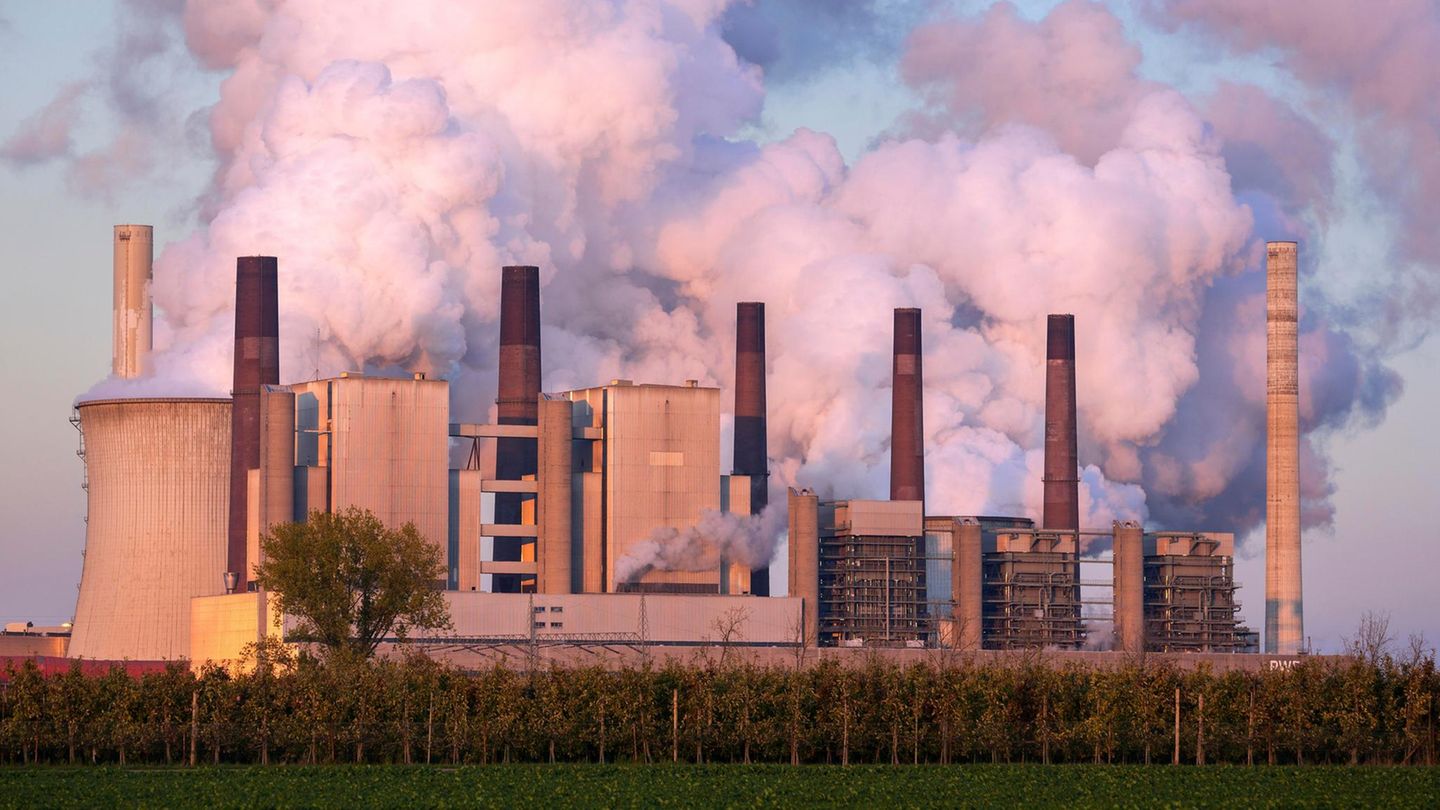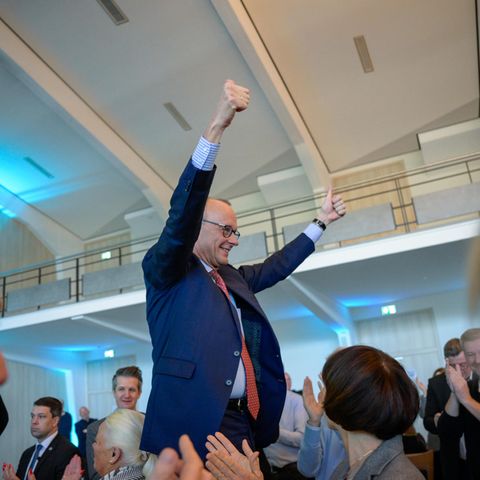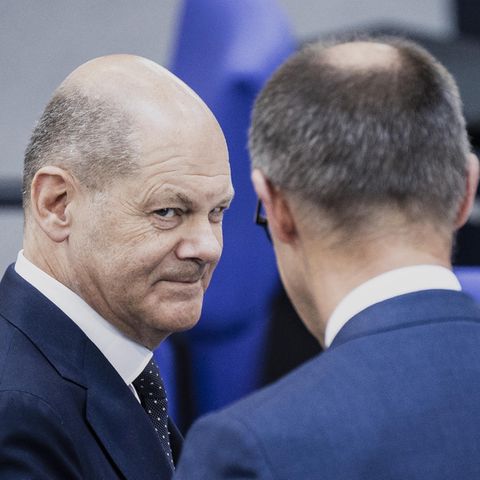Opinion
The traffic light leaves behind a field of rubble when it comes to climate protection
Copy the current link
They set out to save the world – and failed miserably. The traffic light hasn’t achieved much in terms of climate policy. The problem: Unfortunately, it probably won’t get any better.
You can complain and mock a lot about the Greens’ quirks. But in the heated election campaign it becomes all too clear: you are the only relevant party in Berlin that is still approaching the issue of climate protection with the seriousness it deserves in view of the rapidly increasing global warming. Everyone else has more (BSW, AFD, FDP) or less (SPD, Union) said goodbye to quickly effective measures against global warming.
Some even claim that the country will emerge from the economic growth crisis more quickly without ecological efforts. This alone should give a modern industrial nation that claims a global pioneering role pause for thought.
Our own climate goals were shamelessly torn from the traffic lights
Where are we? After three years, the ecological balance of the broken traffic light government is largely dismal. Unfortunately. She has shamelessly torn up her own climate goals. This was primarily due to backward-looking forces in our own ranks, especially the FDP, who took an increasingly ruthless counter-course from day one.
Party leader Christian Lindner showed the full force of the restoration movement at the traffic light showdown in his policy paper on the economic transition. His postulates completely caricature the coalition agreement: Lindner would rather weaken climate targets and abolish subsidies and environmental regulations rather than save the world.
In some ecological disciplines, the unequal triumvirate has left behind a veritable field of rubble. When he took office in 2021, Economics Minister Robert Habeck promised that they wanted to “force the conversion of the energy system to renewable energy, convert the industry and thus finally get us on the 1.5 degree path.” And the young dynamic coalition partners smiled benevolently at him.
But puff cake. The 1.5 degree target has already been broken, says the EU climate change service Copernicus. Not only, but also because of Germany’s inertia.
Above all, the ambitious coal phase-out failed. This can already be stated today without having to use the crystal ball. The end of the biggest climate killers should begin – initially in the Rhenish region – as early as 2030. But over the years, Habeck has not even managed to pass a power plant law that would ensure the coal phase-out. Because one thing is clear: If electricity is no longer generated from coal (and nuclear power) nationwide, other energy sources must be able to step in when there is a lull in wind and solar power to ensure security of supply. No security, no coal phase-out: the logic of the responsible Federal Network Agency is that simple.
To date, there is no power plant law
The Power Plant Act is intended, among other things, to determine which environmentally friendly gas power plants that can later run on green hydrogen will be built and funded. The energy industry has been waiting longingly for a clear legal situation for a long time so that it can finally have planning and investment security. It won’t happen any time soon. CDU leader Friedrich Merz rejects Habeck’s proposed law – simply because he can. No decision is expected before next summer, when a new government is able to act.
By then, at the latest, the last ambitious plans for an early phase-out of coal will be obsolete. Building a new gas power plant takes around five years. So Germany will continue to contribute to increasing climate-damaging CO₂ emissions from coal combustion for a much longer period of time. According to estimates by the Max Planck Institute for Biogeochemistry, they will increase again globally in 2024, albeit by only 0.2 percent.

The traffic light balance in traffic is similarly bitter. The electric car was also talked about within its own ranks. Coalition members were suddenly throwing around words like “technology openness” and “e-fuels” to cater to voting men’s wet dreams of roaring, smoking combustion engines. What’s more: almost exactly a year ago, the traffic light unsettled manufacturers and consumers alike with its mindless decision to spontaneously cancel the environmental bonus for electric cars.
Lesson: What may make sense economically is not necessarily recommended psychologically. According to a new study by the management consultancy Deloitte, the traffic light target of having at least 15 million fully electric vehicles on German roads by 2030 will be drastically missed; there are probably only 11.2 million.
The consequences of the end of subsidies are significant for both ecology and the economy. The transport sector has now broken its climate targets for the third time in a row and will do so again in 2024. At the same time, the German automotive industry, which has been converting to e-mobility for years because it is a foregone conclusion, is coming under increasing pressure. Meanwhile, the sector in the world’s largest car market, China, where no one is questioning the primacy of electric vehicles, is booming louder than ever. And there is nothing to suggest that German car manufacturers could quickly close this gap under a wildly raving auto-chancellor Merz.
The Heating Act, which is actually called the Building Energy Act and was originally passed by the Groko under CDU Chancellor Angela Merkel, was also a shot in the arm. The traffic light adapted it, but communicated the necessary and important conversion of the heat supply in an amateurish way. The external and internal opposition called the FDP took advantage of the opportunity to ridicule Habeck’s plans. This in turn made consumers extremely insecure, and they bought more and more oil and gas heating systems, the costs of which would almost certainly be more than they could afford in the future, instead of heat pumps.
The traffic light can at least be credited with the fact that the expansion of wind and solar power has noticeably accelerated under its aegis. The expansion of the electricity grid is also making better progress. The traffic light calculation apparently worked out: in the entire third quarter, 63.4 percent of Germany’s electricity supply came from renewable sources – a new record.
There is a lack of storage, power lines and biopower plants
But here too there is a big “but”: In the cloudy and windless November, there was suddenly only 44 percent green electricity; Compared to 2023, even more gas and coal were used to generate electricity. Such setbacks come about because the traffic light – like the grand coalition before it – has not created enough large electricity storage facilities, electricity highways and reliable biopower plants.
The result: In 2023, Germany lost 10.5 billion kilowatt hours of electricity from renewable energies because the solar and wind power plants fed in too much energy, overloaded the networks and were therefore simply switched off. That was almost four percent of the total generation from renewable energies.
What does all this mean for the coming legislative period under a new coalition? Certainly nothing good. When the traffic light took office, it had planned 27 laws to solidify environmental and climate protection and support the transformation of the economy. Only nine of them have been fully implemented.
Now please not black and yellow
It remains to be hoped that the parties will come to their senses once the election campaign noise has died down. If you use the traffic light balance as a basis for drawing conclusions about the ecological strength of possible coalition partners in the coming government, you would probably have to say, firstly: three are one too many. Second: The worst combination for Mother Earth would be the duo Merz and Lindner. Third: The most efficient would probably be black-green, because the parties, like communicating tubes, could ensure social balance and promote environmental protection at the same time.
At least if it goes as melodically as it did in the NRW state government under Hendrik Wüst and Mona Neubaur. The couple is surprisingly popular among the people – and actually does pretty well when it comes to climate protection.
Source: Stern
I have been working in the news industry for over 6 years, first as a reporter and now as an editor. I have covered politics extensively, and my work has appeared in major newspapers and online news outlets around the world. In addition to my writing, I also contribute regularly to 24 Hours World.






